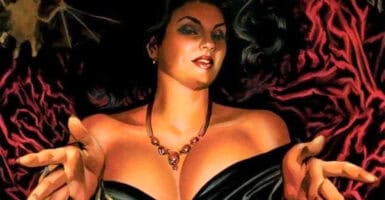The Michael Douglas ’90s Crime Thriller Challenges The Idea Of A Hero
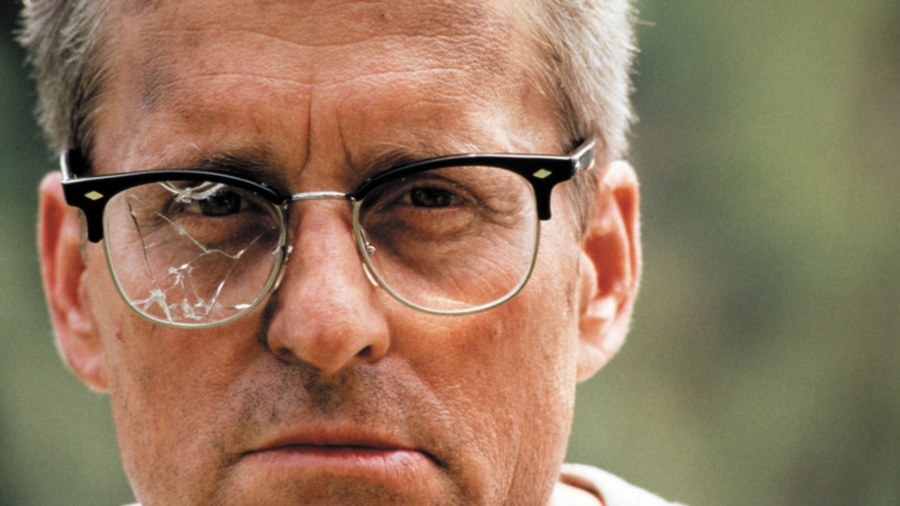
When somebody’s repeatedly dealt a bad hand in life, trivial annoyances can send them over the edge and make them do unspeakably horrible things. Michael Douglas’ William “D-Fens” Foster in 1993’s Falling Down is a prime example of what happens when somebody has all of their buttons pushed just a little too hard and feels the need to take their rage out on the world.
While William Foster has been celebrated as the ultimate anti-hero over the years, I’ll argue that he’s just another “Karen” who can’t get a grip on reality and wants everybody around him to pay for his misfortune.
Michael Douglas In Falling Down
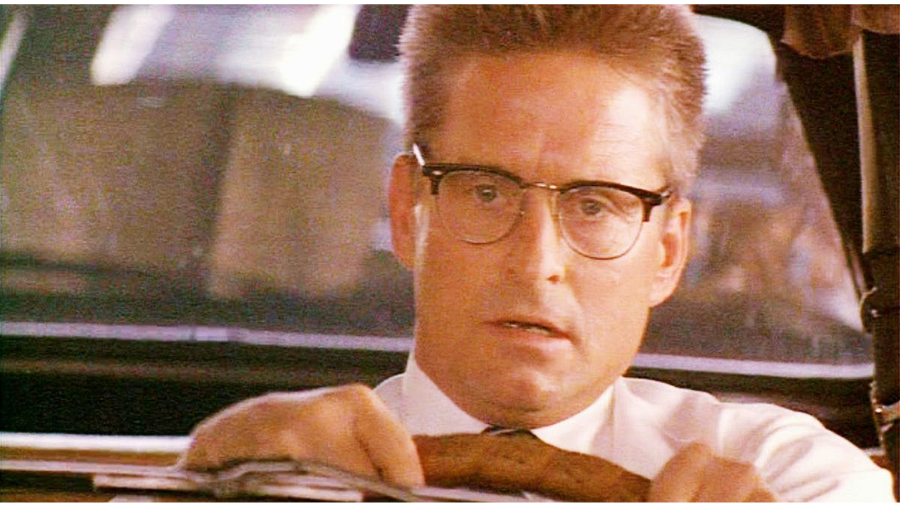
Notwithstanding Michael Douglas’s amazing performance, Falling Down has to be one of the most misunderstood films I’ve ever seen.
Not unlike Fight Club’s Tyler Durden, it’s really easy to root for William Foster for the exact same reasons some people celebrate Project Mayhem. Society pushed William too far, and his psychotic break is very much a product of his environment and circumstances.
I’ll be the first person to admit that it’s satisfying to root for somebody who feels like they’ve been wronged and decides to take matters into their own hands, but Michael Douglas’ performance in Falling Down intentionally extrapolates this notion to absurd levels.
Coping With Reality
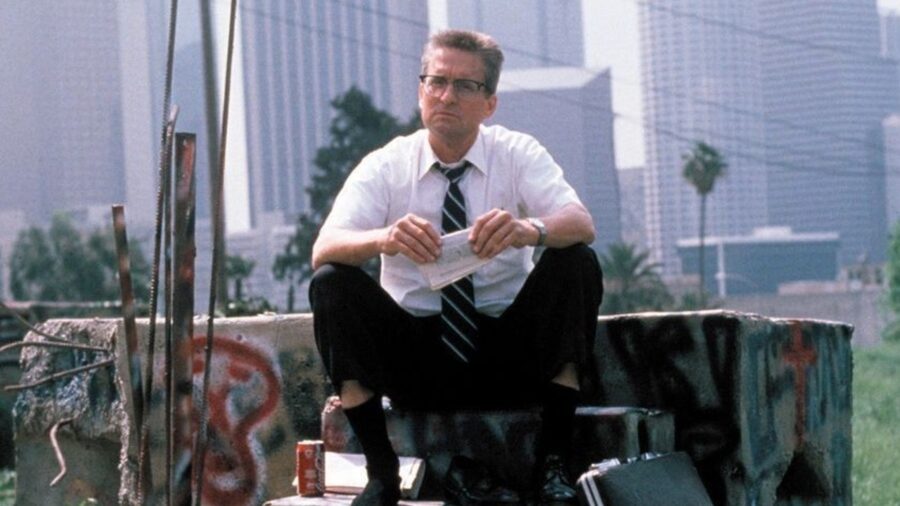
Though Michael Douglas expertly and earnestly portrays William as a man who has been rejected by society by all conventional standards, Falling Down shows us exactly how we shouldn’t cope with our less-than-desirable realities.
When William gets into a fight with Mr. Lee (Michael Paul Chan), the Korean store clerk, over the price of a can of Coca-Cola, he wrecks his store with a baseball bat because he doesn’t have enough change to use the payphone.
Matters further escalate when he brandishes a machine gun at the local Whammy Burger because they stopped serving breakfast just a couple of minutes before he arrived to place his order.
Was It Justified?
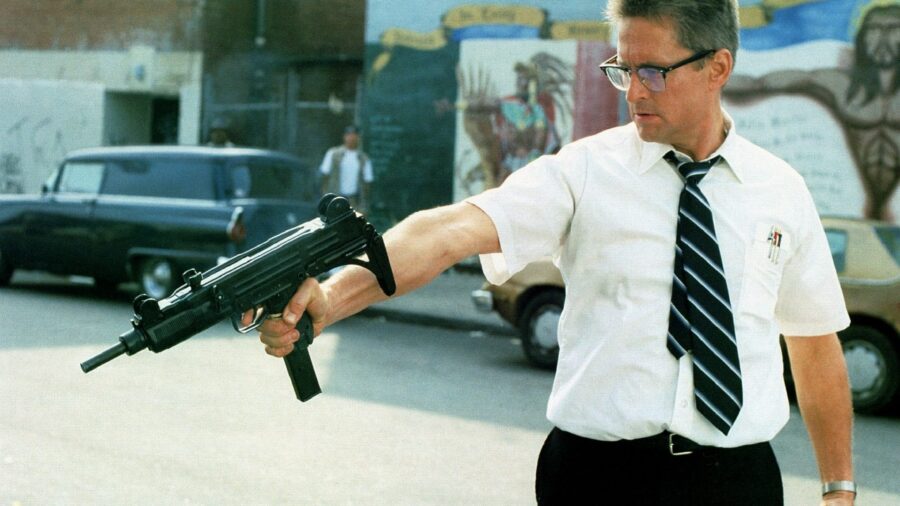
While some of William’s actions in Falling Down are justified (defending himself from gang members who don’t like where he’s sitting), I maintain that his behavior is still completely out of pocket.
William could have peacefully deescalated the situation if he were in the right state of mind. Michael Douglas’ facial expressions and deadpan delivery also suggest that William knows he’s in the wrong but simply can’t help himself as he gets into more trouble throughout the film.
Michael Douglas In Character
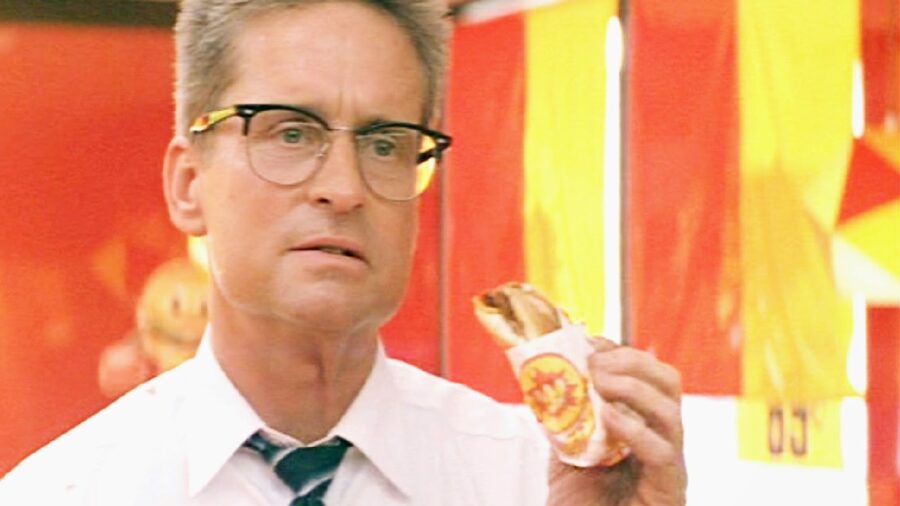
Michael Douglas clearly knew William Foster’s psychological makeup ahead of Falling Down’s production.
His flat-top haircut, wide-framed glasses, and striped tie aim to represent the disenfranchised working-class every-man who’s had enough.
Coming off as a sympathetic character at first, we’re first introduced to William at the beginning of his psychological break, not fully knowing the prior events that led to his rapidly deteriorating mental state.
A Break From Reality
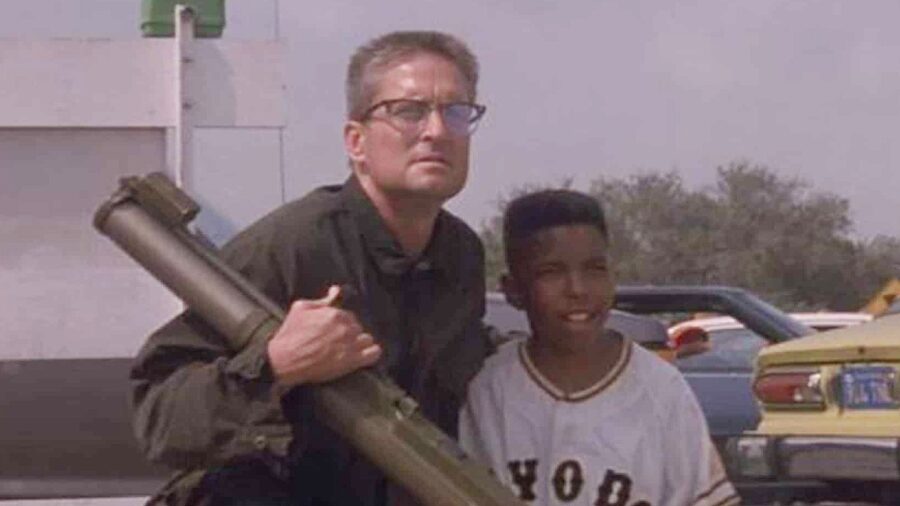
Through Falling Down’s storytelling we learn about the events that lead up to William’s rampage. He’s unemployed, which makes him feel lost, hopeless, and without a purpose.
All he wants to do is visit his daughter, Adele (Joey Hope Singer), on her birthday, but we find out that his ex-wife, Beth (Barbara Hershey), has a restraining order against him, meaning he has no real “home” in the context that he’d like to.
When he views the home movie that was supposed to remind him of happier times, he’s shocked to hear himself losing his temper with his daughter, suggesting that he’s becoming aware of the emotional problems he had long before his life began to fall apart.
Easy To Identify With Michael Douglas
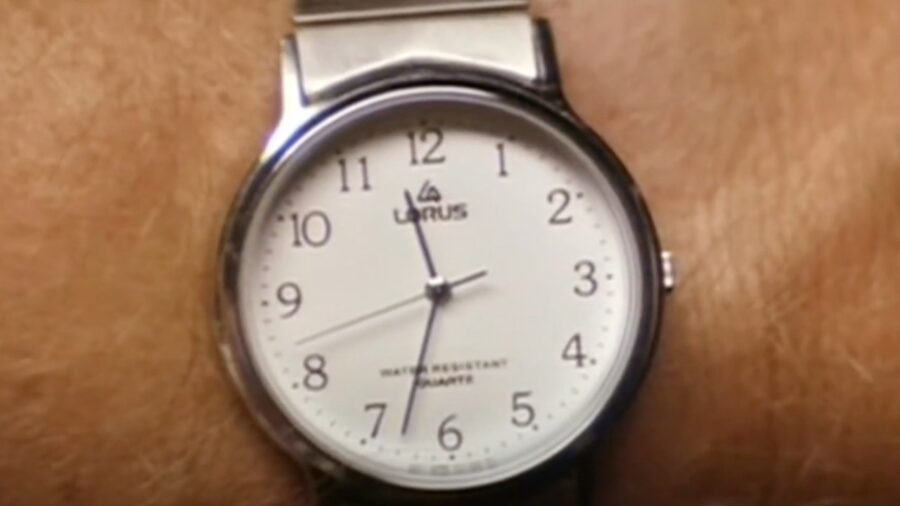
Michael Douglas’ William Foster becomes completely irredeemable in Falling Down, and that’s the entire point of the movie. His frustration with the world hits a critical point of no return, and he is, in fact, the bad guy.
William even comes to this realization in the third act when it’s too late to course correct and have a change of heart.
Michael Douglas’ father, Kirk Douglas, said it best when he stated that Falling Down does not aim to glorify William Foster’s actions. While it may be easy to identify with his violent odyssey because it first plays out as a form of wish fulfillment, it’s not the kind of behavior that should be celebrated.
At the end of the day, William Foster is just another person who went off the deep end, which could have been avoided if he wasn’t so tragically unaware of his own shortcomings.










